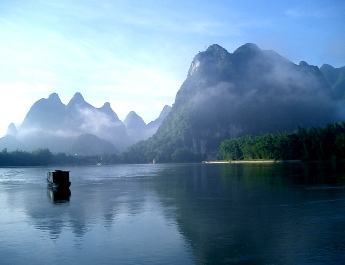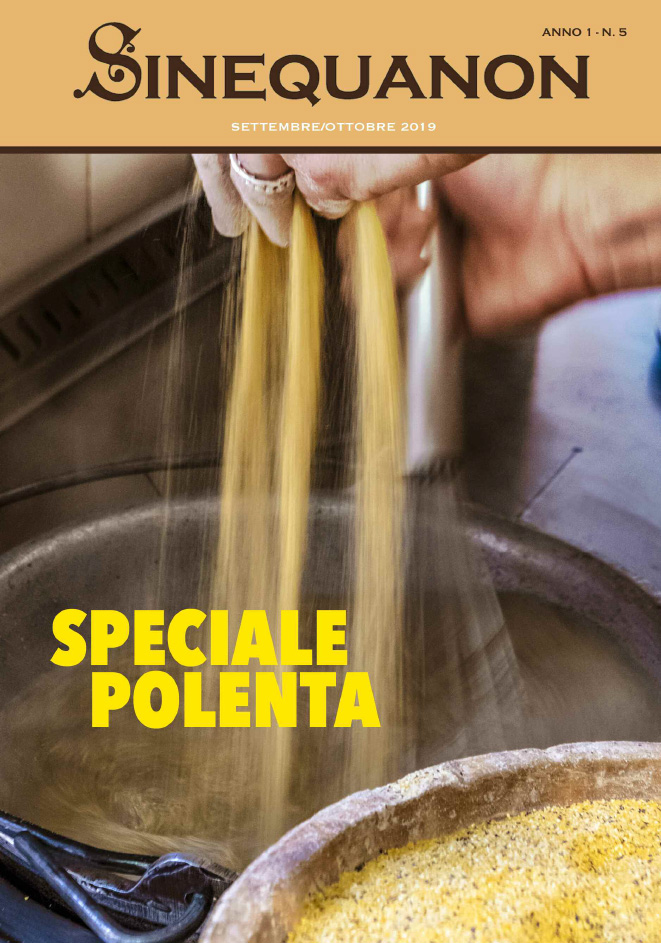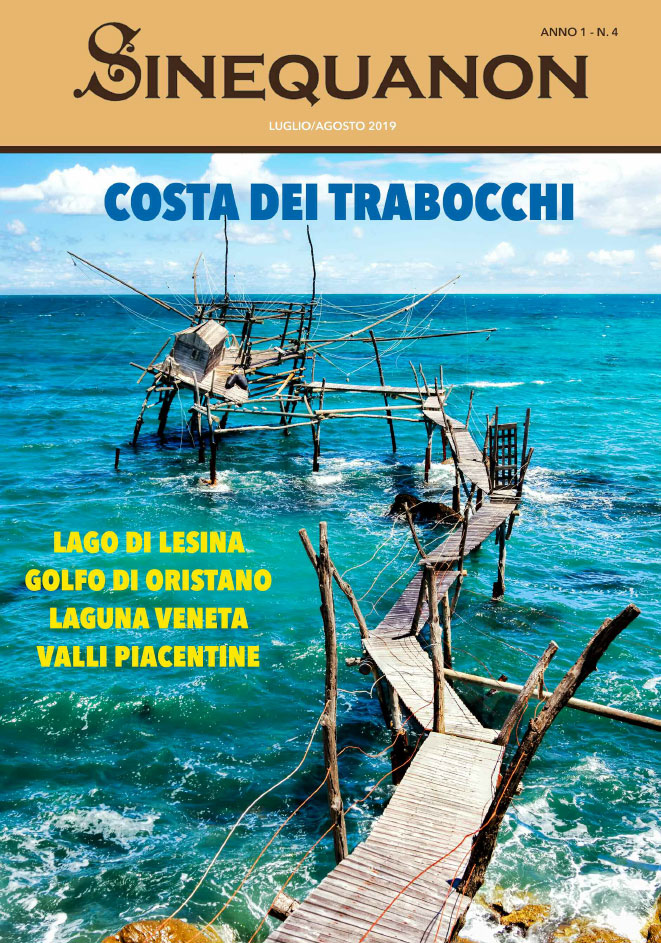PAMELA MCCOURT FRANCESCONE
PHOTOS BY NINA BETORI
This book, written by a young Roman student, tells of a journey of discovery in China, not the glossy China of futuristic metropolises, nor the China of a major emerging economic power, but the lesser-known China, the China of the young generation which is, all too often, hidden from Western eyes.
?For anyone who wants to know something the only way is to live in contact with it, which means living (acting) in its environment??all true knowledge comes from direct experience.? It is with these words of Mao Tse Tung that Nina Betori starts her book ?Sommerso rosso,? published by EDT Collana Orme. Twenty-two-year-old Nina took Mao?s advice to heart and, together with a companion, travelled through China?s southern regions not as a tourist, but the way the Chinese themselves travel which often meant adapting to barely liveable conditions. Her goal was to get a better understanding of this immense continent, to see the Three Gorges on the Chang Jiang or Yangtze river before they disappear forever under the waters of the largest dam in the world, and to get a better understanding of the Chinese people who she describes as being ?courageous and full of contradictions, but united by a profound conscience of their history and of the suffering this has brought with it.?
Nina told Sinequanon about her journey, her experiences and her impressions.
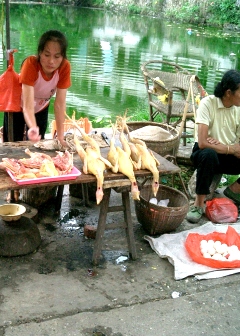
What made you decide to start studying Chinese at the age of 16? And where did you study it?
?My initial approach with the region came through the difficult situation in Tibet. And then I realised that if I really wanted to understand what it was all about I would have to understand both sides of the issue. I had also read a lot about China. And what I had discovered was an infinitely complex world that could only be deciphered by learning the language, as it is there that you find the mental model and the visions of the world of a people. I did an 50-hour intensive Chinese course in Italy and, after my school leaving, I went to Peking. The only way to learn this language is to assimilate it in the country.?
How long was the journey you write about in the book during which you discovered a very different China from that which you describe as ?official Peking.? What is different about it and how did it help you to understand the country better??
?The journey I recount in the book took 16 days. In spite of the fact that with the 2008 Olympics Peking will become the showcase of the new and modern China, the city is still the political and conservative heart of the country. It is a lacerated rag fraught by the shilly-shallying between progress and tradition. A world apart, and which becomes increasingly more indistinct the further away you get from it. The South-Eastern part of China is less radical, it has smoother edges. The inhabitants enjoy a more leisurely way to life, they are more relaxed. They don?t have the harsh winters of the North and they speak an amazing number of dialects. In Peking they are looked down on for their dark skin and because they eat mostly rice instead of wheat. But, more than everything else, travelling made me I realise that there is no common denominator in China. Although the populations in the South have been forced to forget their multiple racial roots in the name of political unity, these roots have still not been completely eradicated; they can still be found in the mountains and in the funny mispronunciation of putonghua, the official language.?

What was it like to navigate the Chang Jiang river, better known in the West as the Yangze? The new dam will make it possible to control the river ?exploiting its hydroelectric and irrigation potential and bringing modernization to vast areas of rural China.? But what did you feel when you saw entire cities, ancient traditions and age-old cultures being wiped out?
?The first part of the journey brought us along the Fengdu river to the area of the so-called ?ghost cities.? When the morning mists lifted the first thing I could see on the horizon were the smoking remains of buildings that had been imploded only hours before. And I found myself not only in the midst of the uncontrolled destruction of new and ancient buildings, but also the destruction of lives, customs and security. I saw old and young wandering through the rubble of their homes looking for personal belongings; sometimes the eviction orders arrive less than twenty-four hours before the demolitions start, leaving no time for the inhabitants to carry their belonging into the street or somewhere where they can store the. It?s difficult to say what I felt at those times. On the one hand impotence and anger. On the other the feeling of being out of place. The violent way in which people looked at me turned into accusations in my mind. I remember that the lorries carrying the rubble used to speed up when they saw us to spray us with mud. And I kept saying to myself ?I deserve this, I deserve this.? Maybe it was a way to pay for the guilt I felt for having a stable place to return to after my adventure.?
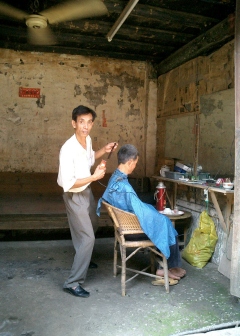
When you got to Yangshuo you say ?you can buy fruit in a public place without worrying about stomach cramps, you can go around barefoot showing your heels, which are considered highly erotic parts of the female body elsewhere, and you can wear sleeveless T-shirts.? So there really are two Chinas? The China closer to Hong Kong and the China closer to Peking?
?I came across various Chinas, certainly more than two. But if I had to imagine China divided into two parts, then I would probably use the division chosen by nature: the Yangtze river which is the border between two worlds. The Chinese in the North have always liked to distinguish themselves from those in the South considering themselves to be the ?true heirs of the five thousand years of history of the Celestial Empire.? Those in the South complain about the coolness and austerity of their northern brothers. When Hong Kong was ceded to the British after the Opium wars and foreigners arrived in Shanghai, the divide between the political heart of the capital and the business-oriented and anarchical character of the South grew to a stage of apparent incompatibility. And thinking about it, for four decades Shanghai was castigated for its capitalist sins, yet as soon as it could it returned to its ante-Communist origins, delighting in vices and fun and becoming one of the most modern metropolises in the country. It really does have quite a different character.?
And the poverty which you describe as ?wide-spread? and which can ?not be seen as a picturesque element but a serious problem for contemporary Chinese society.?
?In the beginning I too was attracted by certain scenes I saw in the streets. Especially in the old part of Peking or in rural areas, where time seems to have stood still for a very long time. I have learned the language and delved into the problems of the poorer social classes, and inevitably my way of looking at things has changed. I no longer see poverty as an exotic image but a growing emergency. In the West we continue to talk about the Red Dragon, of China and its exponential economic growth, but at the same time we belittle the problems the country is having to cope with in the rural areas. Unfortunately this vast country is mostly recognised for its economic prowess and not for the social woes afflicting it. On the one hand Chinese politicians and businessmen would like to conceal these problems to the western world while, on the other, the intellectuals are starting to perceive this lack of participation as a lack of respect.?

Talking about Mao Tse Tung you say: ?For many the president?s myth has remained intact, even after his death. There are those who love him with the same ardour. And there are those who have accumulated so much hate that they disown him, avoiding any reflection and living their lives with stubborn superficiality. And there is also the average Chinese who lives in Mao?s shadow, who praises him as an excellent poet and as the father of the great Chinese family. And those who see Mao as an icon and still have nationalist sentiments. But the young generation is indifferent to Mao, for them he is merely a legend, a neutral figure and destined to remain such as their parents have no intention of discussing him. The only ones who have attempted to delve into the past are the intellectuals, and through their testimony it is possible to spy on and understand the Chinese in their complex and precious truth.?
Did your journey give you a better understanding of China and of the difficulty the Chinese have in coming to terms with the myth of Mao Tse Tung?
?Peking is the best place in which to understand Chinese history and the presence of Mao who is still very much a part of the Chinese way of life. But you need to have a lot of time, spend many evenings drinking beer and grappa and eating sugared peanuts with the locals. The Forbidden City, the Temple of Heaven, the Summer Palace etc. are striking traces of a very ancient past. And they are still there alongside enormous, grey cement buildings which are the symbols of a different kind of Communism, ultra-modern skyscrapers and the skeletons of buildings which have never been finished as the money ran out. Peking is the city in which hundreds of historical eras collide. The city in which Mao, from his giant portrait in Tian?anmen, seems to scrutinize the square on which it is legally forbidden to smile or to cry. Travelling through China helped me to compete the picture I had painted of the country while I was living in the capital. I got new images and impressions. I was able to make comparisons.?
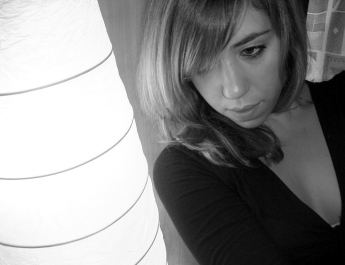
After the navigation of the Yangtze you write: ?I think I will understand the importance of this journey only when I will have finished it. Is that what happened??
?So many journeys. When it was over I realised how much I had travelled, how much I had battled, and how much bigger and more capricious China could be than my own imagination.?
?Sommerso rosso,? published by EDT Collana Orme.

